They’ve taken down Russian hackers with the FBI, risen through the ranks at top universities, broken codes using their linguistics skills, and stood up in court to protect women’s rights in the age of generative artificial intelligence. To some, they may be superheroes and to others they may simply be doing their jobs. But on Friday, November 3, these women came together as leaders and inspirations for the next generation of cyber professionals to stand tall in the male-dominated cybersecurity industry.
Champlain is on a mission to become the best place in the world for women to study cybersecurity and digital forensics. To that end, Champlain College and its Women in Cybersecurity Leadership Council organized the Women in Cyber Summit: The Next Generation of Cyber Professionals for nearly 150 high school students, professionals, alumni, and community members to spend the day together discussing challenges, opportunities, and the future of the industry.
Michele Tomasic, deputy director of the nonprofit organization WiCyS (Women in Cybersecurity), gave the keynote address.
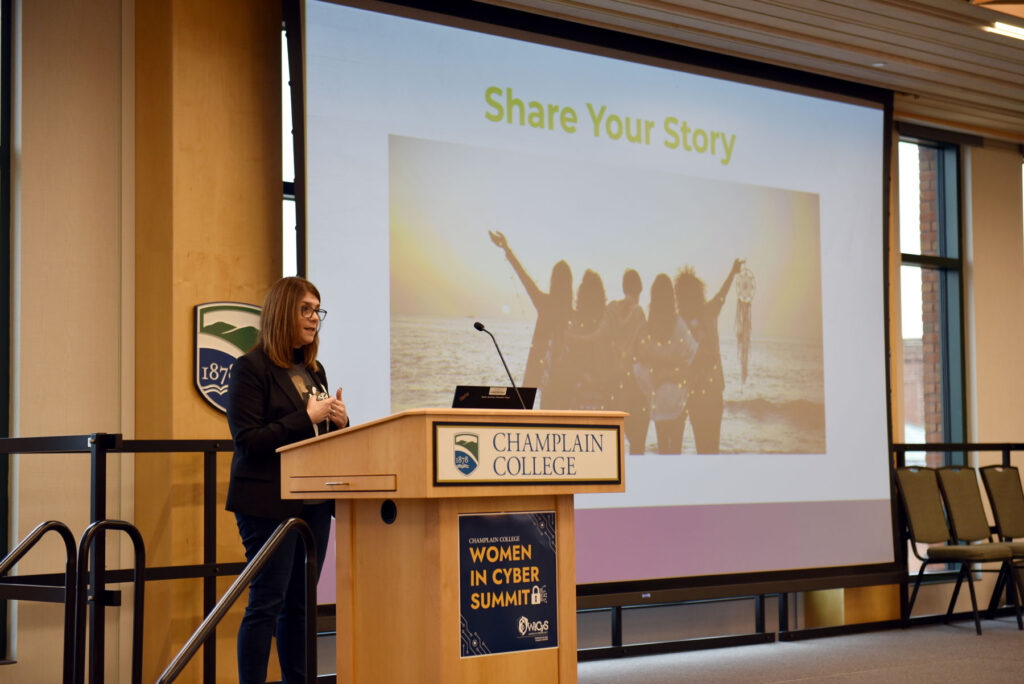

“We need to have more women in this field. We need diversity of thought. We need to bring more people into this very important work that all of you eventually are going to do,” Tomasic said. “We can’t create change if we don’t do things like what we’re doing here today…We need to bring other people into this field, and I’m looking out at all of them right now.”
Tomasic kicked off a full day of speakers, presentations, and demos ranging in topics from Open Source Information Gathering to detecting and preventing human trafficking. And while their stories and expertise all varied, they collectively demonstrated how far the industry’s reach truly is—it touches everything. That diversity of thought Tomasic mentioned has never been more critical than it is today.
Here are some insights and advice our speakers, guests, and community members shared about the gender gap and careers in the cyber field:
1) Above all, it’s ok not to know what you want to do for the rest of your life! Explore your options and welcome new experiences.
You don’t need to know what your future is going to look like. But your passions are going to lead you to where you can be in the world to make the biggest impact, using the strengths that you have and the strengths that you can develop.
—Mauriella DiTommaso G ’16, Senior Cybersecurity Manager and Digital Forensics Investigator, Washington State Department of Social and Health Service
Deputy Director of WiCyS Tomasic shared that she studied special education in college at the encouragement of her parents, only to work her way up from opening mail to becoming director of operations at one of the leading cybersecurity divisions in the nation. Her 30-year career at Carnegie Mellon University allowed her to become a lifelong learner and build a deep passion (and impressive professional network) for cyber.
“I said, ‘This will give me the opportunity to spend time with my son, to spend time with my family, to plug myself into this organization where I can learn as much as I possibly can and get to where I want to be eventually.’ It doesn’t always have to be immediate. You don’t have to have that immediate gratification. So I did,” she explained.
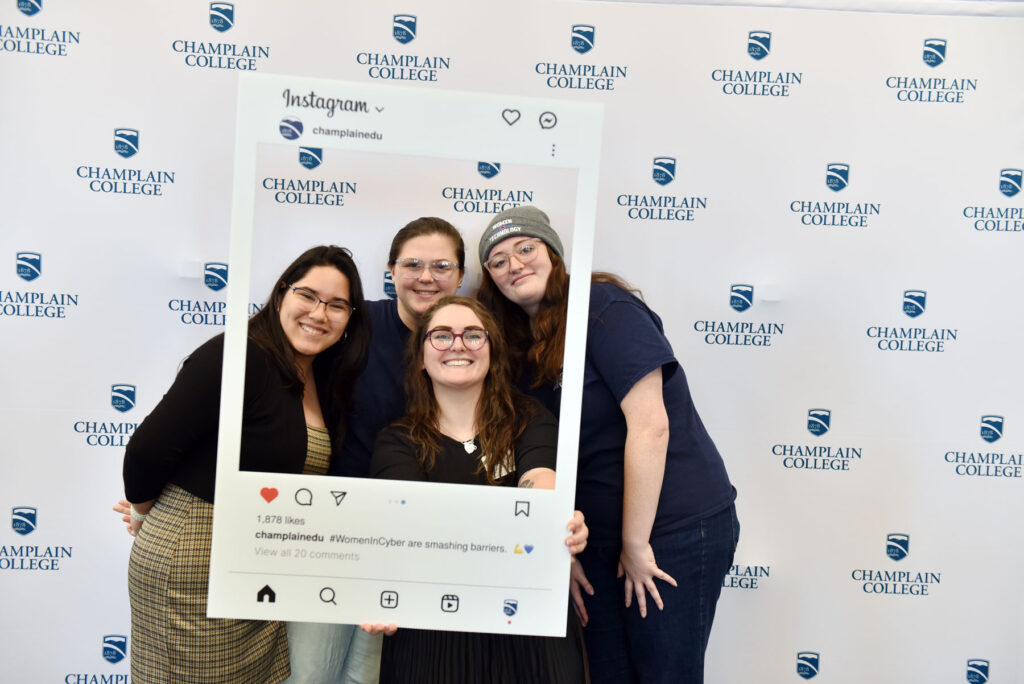

2) Get comfortable with the uncomfortable.
“Find a community of people that can help you and surround yourself with the great educators that are in this building, that have walked this campus. You’ll find throughout your professional career that they’ll help you start to believe in yourself, but you have to get comfortable with the uncomfortable. There’s going to be a lot of uncomfortable situations, not only in your academic career, but in your professional career. But once you have that belief in yourself, you will do phenomenal.”
—Michele Tomasic, Deputy Director, WiCyS
Being uncomfortable, being flexible, having tenacity and grit is so important in this field and having to sit sidelined…was really hard for me in the beginning, but in the end it all worked out. And I also found that if you’re going to interview hackers, wear combat boots.
—Samantha Balzersen, Supervisory Special Agent, FBI
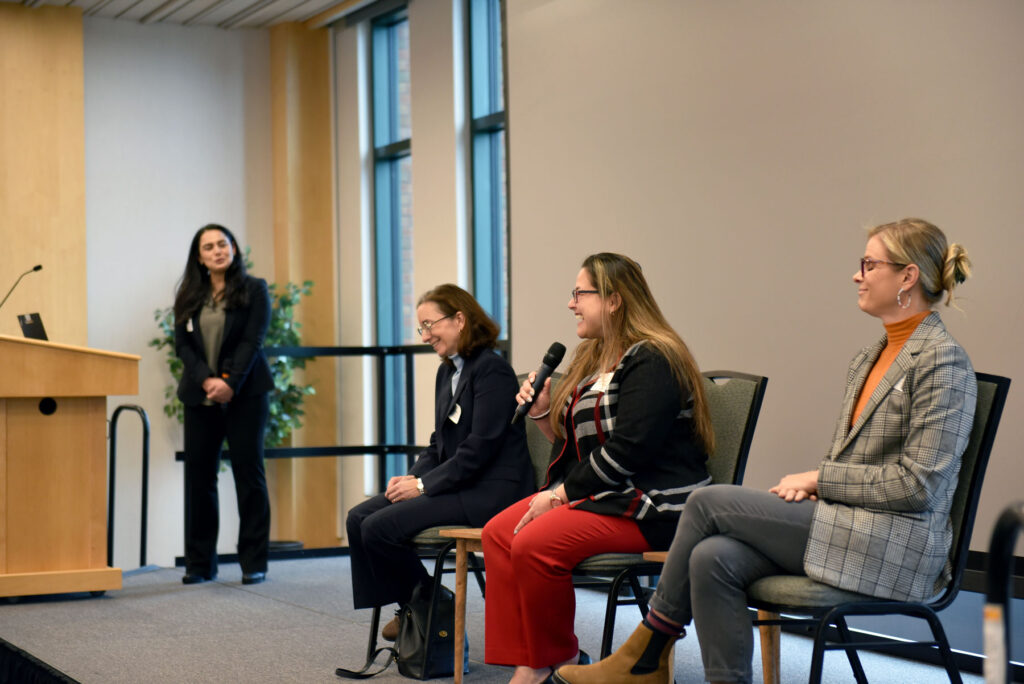

3) The military and government are great avenues to launch your career or to advance in your training and certification in the cyber field.
Speakers including Balzersen, DiTommaso, and Nickole Arbuckle have worked for entities including the FBI, Department of Defence, the Army, and the White House. In fact, all three women got their start in the military before moving on to successful careers in cyber. “The great thing about the government is they will train you and they will pay for it,” advised Balzersen.
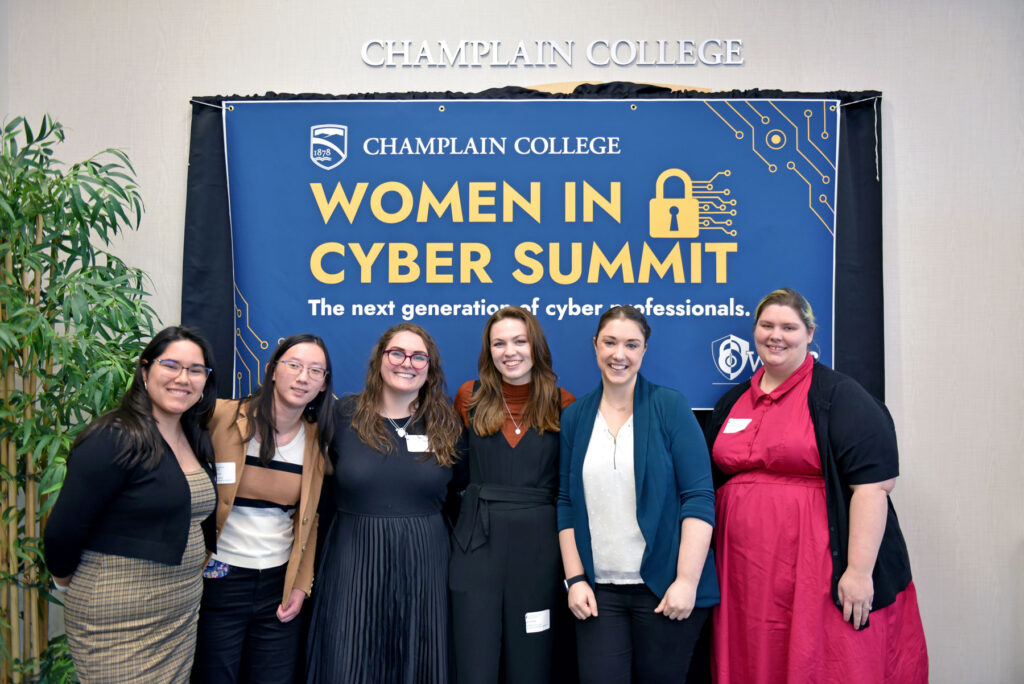

4) When searching for colleges and choosing a major, look at the curriculum and courses that make up your program of choice. You’ll learn a lot about the skills and avenues in the field and can even find professors to connect with about your interests.
“This is how I found out very quickly that I did not want to pursue a computer science degree, because 17-year-old Emily was not taking Differential Equations,” joked Emily Shelton ’18, a strategic consultant at Mandiant and Computer Networking & Cybersecurity alum.
Curious about what Champlain College’s cyber programs look like? You can check out the curricula for the Computer Networking & Cybersecurity program and the Computer & Digital Forensics program (and all other programs!) in the online Course Catalog.
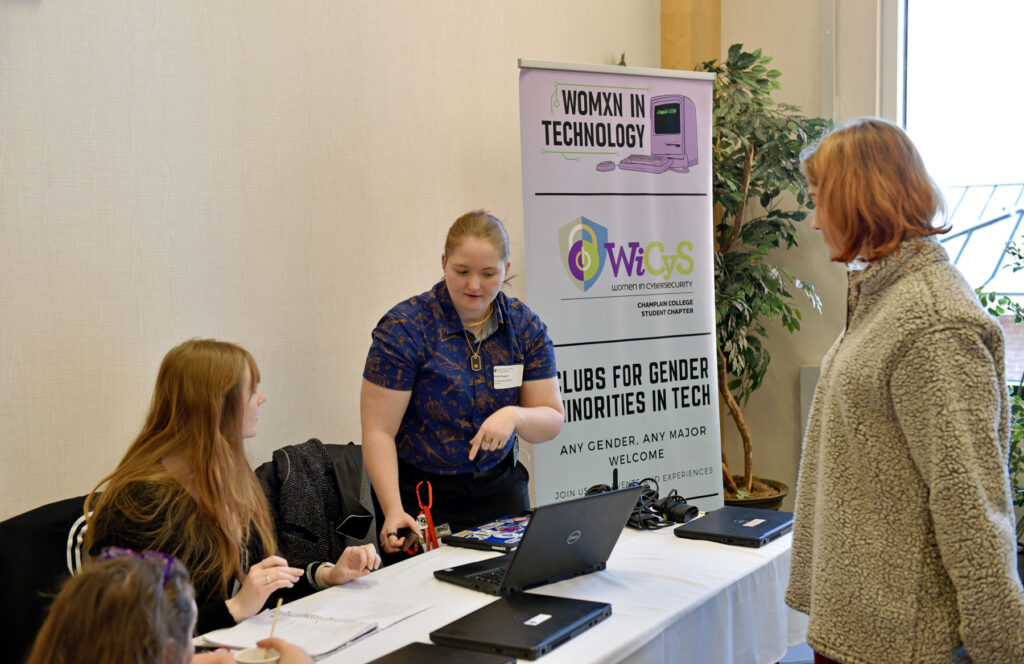

5) Women are disproportionately affected by deep fakes, and 90% of deep fakes feature women’s faces.
Vermont’s first female Attorney General Charity Clark spoke on the importance of protecting personal and biometric data as artificial intelligence becomes more prevalent. “There aren’t enough women in this field and so they don’t know what it’s like to be us,” she said. “We have to get into this field to make it better, to make it safer—even if not tech, it could be policy. It’s a great thing to do to get into this field, especially coming from Vermont, where the value of privacy is in the ethos of our state.”
Stay tuned for more information about next year’s Women in Cyber Summit, an annual event that is dedicated to bridging the gender gap through the next generation of cyber professionals. Interested in pursuing a world class education in cyber with us? Take the first step by adding Champlain College to your Common App!